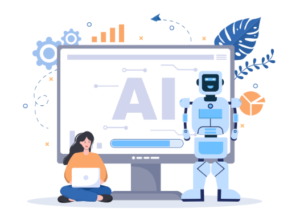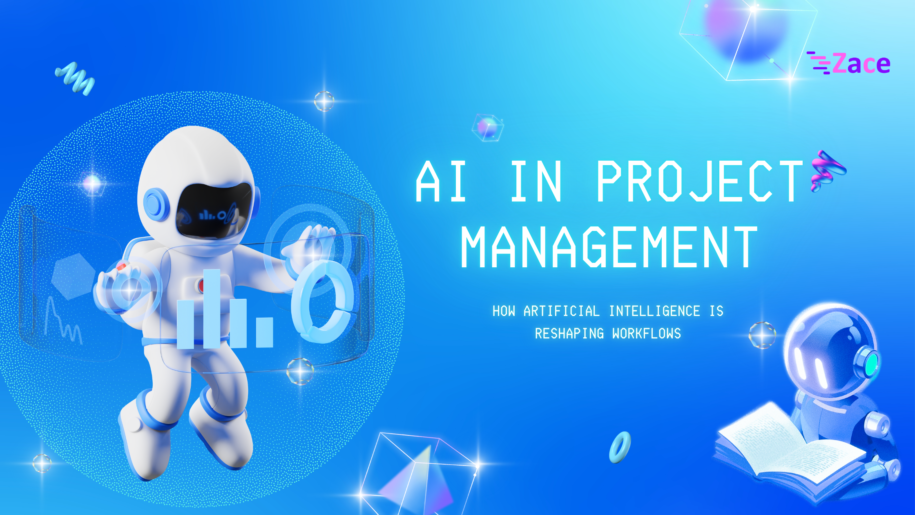“Imagine a project manager who never sleeps, never forgets, and always predicts risks before they happen.”
That’s not a fantasy anymore—it’s AI in project management.
From automating repetitive tasks to predicting project delays before they derail timelines, artificial intelligence is transforming how companies and startups manage workflows. What used to take hours of manual tracking, reporting, and risk analysis can now be handled in seconds with smart AI-driven project management tools.
Let’s explore how AI is reshaping project management workflows, why it matters for businesses of all sizes, and how you can start leveraging it today.
🧠Why AI in Project Management Matters 🤖
Traditional project management often struggles with:
-
Missed deadlines due to poor forecasting.
-
Overloaded project managers juggling admin tasks.
-
Lack of real-time visibility into project performance.
According to a report by PwC, AI could contribute $15.7 trillion to the global economy by 2030, with project-intensive industries like construction, IT, and manufacturing among the biggest beneficiaries.

For startups and enterprises alike, AI-powered project management systems promise:
-
Smarter decision-making based on data, not guesswork.
-
Efficiency gains by automating repetitive tasks.
-
Risk reduction through predictive analytics.

6 Ways AI Is Transforming Workflows
AI algorithms analyze past project data, team performance, and industry benchmarks to predict potential risks before they happen.
- Identify bottlenecks early.
- Forecast budget overruns.
- Alert managers to possible delays.
Project managers spend hours creating status reports, scheduling tasks, and sending reminders. AI handles these automatically.
- AI-powered assistants draft progress reports.
- Smart scheduling tools assign resources based on availability.
- Chatbots answer FAQs for project stakeholders.
Instead of manually deciding who works on what, AI analyzes workloads, skills, and deadlines to suggest optimal resource allocation.
- Balances workloads across distributed teams.
- Reduces employee burnout.
- Improves overall efficiency.
AI-driven dashboards consolidate live project data—budget, tasks, risks, and KPIs—into clear, real-time insights.
- Visualize project health instantly.
- Track deviations from plans.
- Make data-backed adjustments quickly.
Instead of relying solely on experience or intuition, project managers can use AI recommendations to:
- Select the best project methodology (Agile, Scrum, Waterfall).
- Prioritize tasks based on impact.
- Decide whether to scale resources or pivot strategy.
AI-powered platforms (like Microsoft Project, Wrike, or Asana with AI integrations) foster smoother collaboration.
- Translate time zones for distributed teams.
- Suggest optimal meeting times.
- Summarize long project discussions into quick briefs.
Artificial Intelligence isn’t here to replace project managers—it’s here to empower them. By integrating AI into project management workflows, businesses can move faster, make better decisions, and reduce risks.
The question is no longer “Should we use AI in project management?” but rather “How fast can we adopt it to stay competitive?”
👉 What’s your take—would you trust an AI system to predict your project risks or allocate resources?
Share your thoughts in the comments, and let’s start a conversation on the future of project management.
